What to Read: East of Eden, John Steinbeck
- Maura Jean
- Jan 20, 2018
- 6 min read
Where to Read it: El Alto Finca, Cerrecita, Ecuador
Evangelism in small town Ecuador, farming, and the choice to be good
I had been communicating with Fabrizio over e-mail for several weeks entirely in Spanish, so it seemed a bit of a miracle that I managed to arrive at the appointed time in the appointed place where he was going to pick me up to take me to the farm I’d be working on for the next month.
I had taken a bus from Cuenca, Ecuador to Guayaquil, one of the two major cities in Ecuador. I sat next to a Filipino missionary, an evangelist who spoke with distaste of his home country and the violence that President Duarte had begun with his war on drugs. He did not seem particularly mission-driven, but rather had wanted desperately to leave Manila and found that Evangelism was the only avenue open to him to do so. I half-listened to him as I watched the misty, green mountains give way to flatter, drier plains.
From Guayauquil, I got another bus towards the coast to Cerrecita. Cerrecita was a small town with about six streets. Most of the buildings were made of cinder blocks stacked on top of each other with sheets of tin for the roofs. There were a handful of storefronts on the street the bus stopped on: a bakery, a bodega, a shop full of bootleg DVDs. Men sat in plastic chairs outside of them drinking Pilsener and Club beers.
Fabrizio came to meet me with his Argentinian wife, Paola. Fabrizio was from Ecuador but had spent eleven years in London playing music in the 90’s grunge scene, so his English was impeccable. Paola spoke English at around my own Spanish proficiency level, which is to say not particularly well.
We piled into his white pickup truck and headed to the farm. El Alto was only a couple of miles from Cerrecita and we drove down dirt roads, past huge fields of cacao and plantains until finally we came to my new home for the next month.
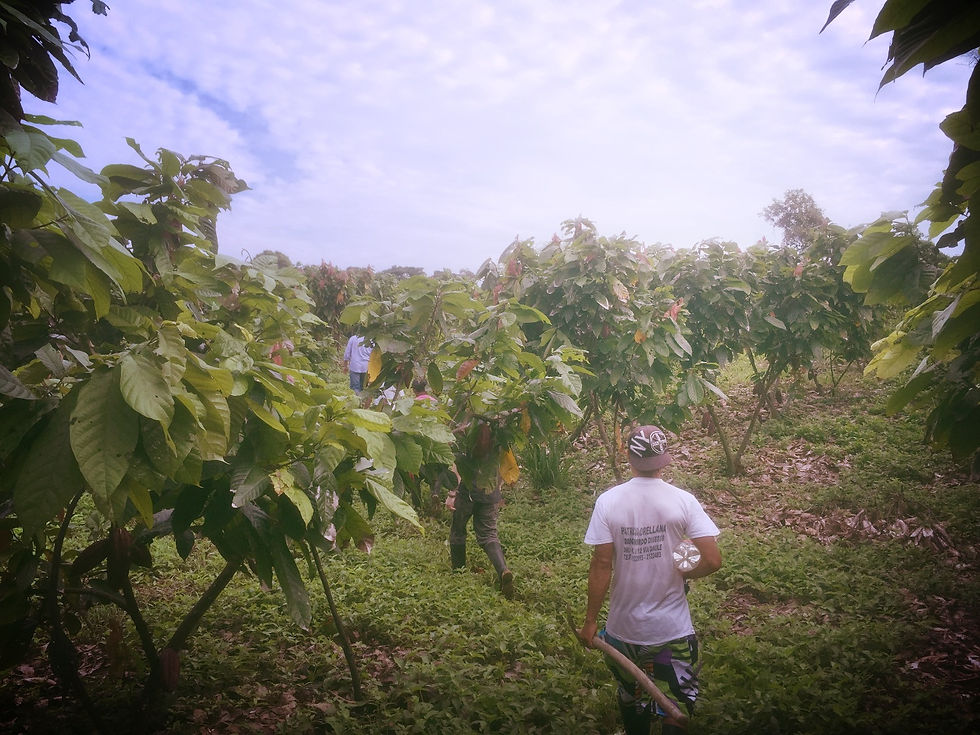
The Cacao Field
It was simple but comfortable. No air conditioning or hot water, but cool tile floors and beds with mosquito nets. There was a scorpion that lived in the shower, but he never did more than pop out of his corner and stare at me while I bathed.
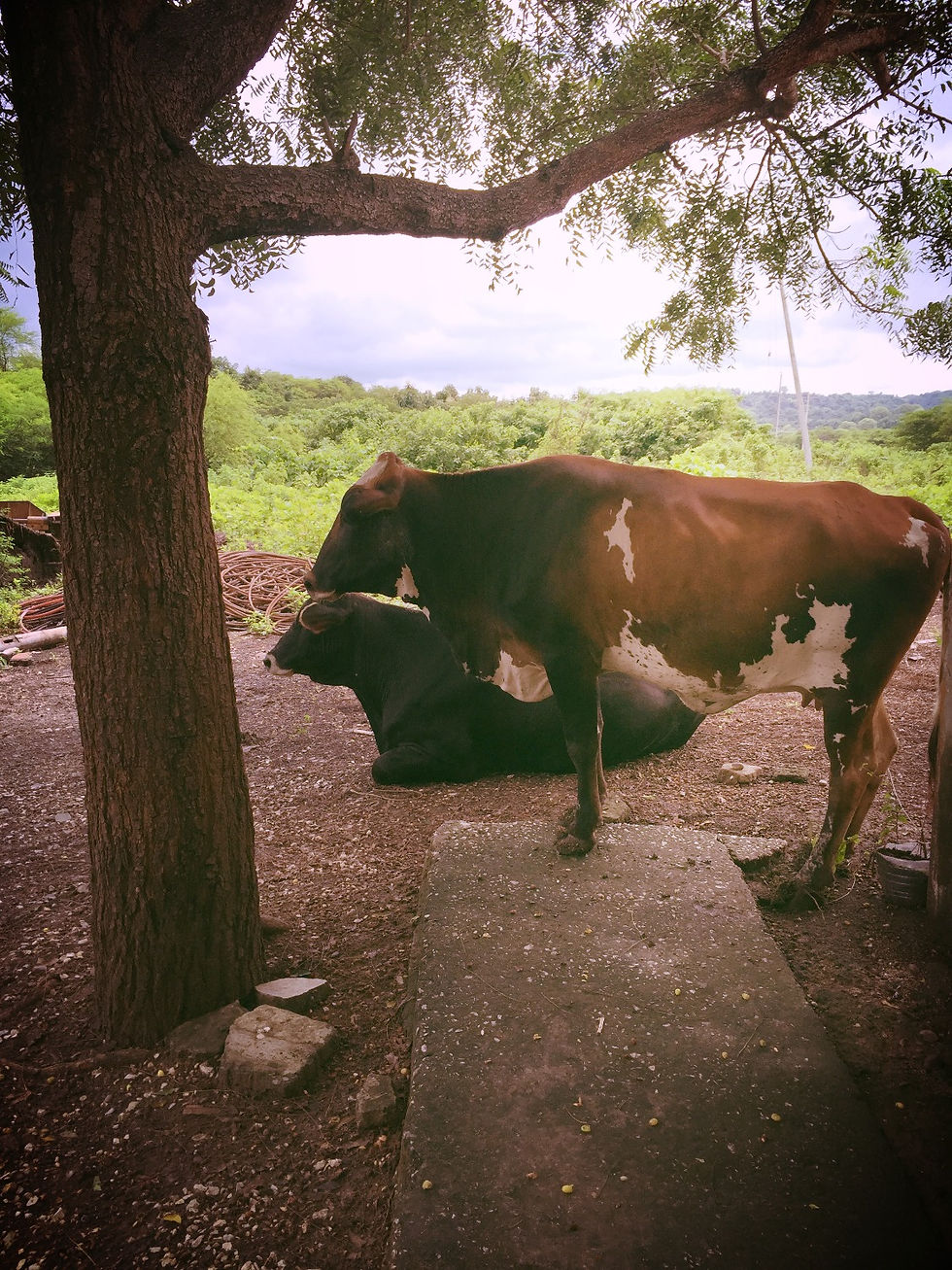
A common sight from outside our front door in the morning
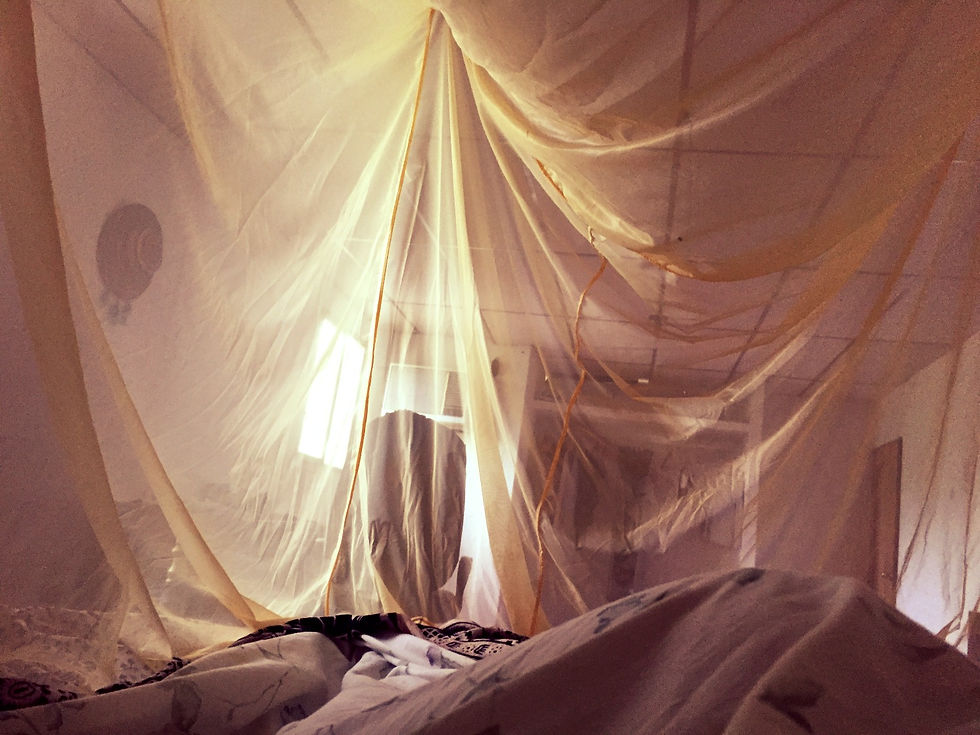
A view from inside the mosquito net
Serendipitously, another volunteer named Evan arrived on the same day that I did. Even stranger, we had the same birthday. He was reading John Steinbeck's East of Eden. I'd read Grapes of Wrath in high school and hadn't connected with it, and so I didn't feel particularly compelled to read it. However, we had about 6 books between us, no internet, no television, and a deep exhaustion after working all day in the suffocating, sunny humidity. So I picked up East of Eden after Evan was finished with it.
I devoured it. I spent the morning clearing vines and trees with a machete, turning compost, breaking open sacks of fermenting cacao, cutting plantain leaves. And I spent the evening reading East of Eden and cooking meals with Evan from the fruits, vegetables and grains that Fabrizio had left for us. My days became simple, filled with backbreaking work, mosquito bites, and the tale of Adam Trask, a man who could never get anything quite right that put all of his hopes and dreams into a farm in the Salinas Valley.
Samuel Hamilton, the patriarch of another Salinas Valley farming family, became so real to me that I cried when he died and felt as if I'd lost someone terribly important to me for the rest of the day. He was stalwart and kind, and simplified the complexities of life in such a way that it seemed being happy was something anyone could do.
And finally there was Cal Trask. I'd never come across another character in literature that I related to on such an intrinsic level. I felt that Steinbeck was reaching out and speaking to me across the decades, telling me that I had a choice about who I was. Cal believed that he was born bad. Partly, this is because his mother, Kate, is a psychopath that tried to kill his father. Even before Cal found about Kate, though, he'd been born with a sense of wrongness about him. He was kind or charitable, he didn't particularly care about other people. He would lie and cheat. His twin brother was golden, simple and good.
Cal is largely a slave to his own nature until finally he is set free by a word: Timshel. This word comes from a debate between Lee, the Trasks' chinese servant, and Samuel Hamilton about a translation of the Bible. The Ten Commandments are often translated as 'Thou shalt not" which has the flavor of, fittingly, a command. Lee, however, says that the word timshel does not mean 'shalt not' but can instead be translated as 'thou mayest not'.
Thou mayest not kill. Thou mayest not covet your neighbor's wife. This sounds like a command, and more like a choice. In this, Cal finds his freedom, as did I. Your nature will compel you towards wrong, but you have a choice not to give in. You can choose not to kill, commit adultery, and generally cause pain and mayhem in the world. That is what free will is, and that it was what timshel means.
This little town in Ecuador had a bit of an East of Eden feel to it. There was a town on the farm property called Bajado de Progresso. It was so small that it did not appear on any maps and the town census was taken with pen and paper. Everyone who lived there worked for Fabrizio and his family. There was a small restaurant, shop and bar that had two pool tables, a playground, and an open air meeting hall.
On a Friday night, we'd gone to play pool in the town and everyone was gathered in that meeting hall. A man was preaching with a microphone, his voice amplified both my a speaker and by his own screaming. He was screaming about Jesus and hell, and the entire town had turned up there on a Friday night to listen. They were yelling back. I'd never seen anything like it.

Fabrizio told us that Evangelism had become omnipresent in Ecuador. He talked about how the farm workers used to play instruments and have huge parties where they would sing and drink late into the night. Now, they only sang Evangelical hymns. And sure enough, I often walked past small "churches" in Ecuadorian towns that consisted of a keyboard playing a hymn and a group of people singing along under fluorescent lights.
Fabrizio wanted this to change. He didn't like the way these people had changed. They were afraid, he said. Many of the farm workers had checkered pasts; they had committed all manner of sins including murder. Evangelism had given them a path to redemption, but Fabrizio said that it came at the expense of their happiness. Fabrizio had grown up on this farm and it seemed that a great deal of the color in the community had been lost.

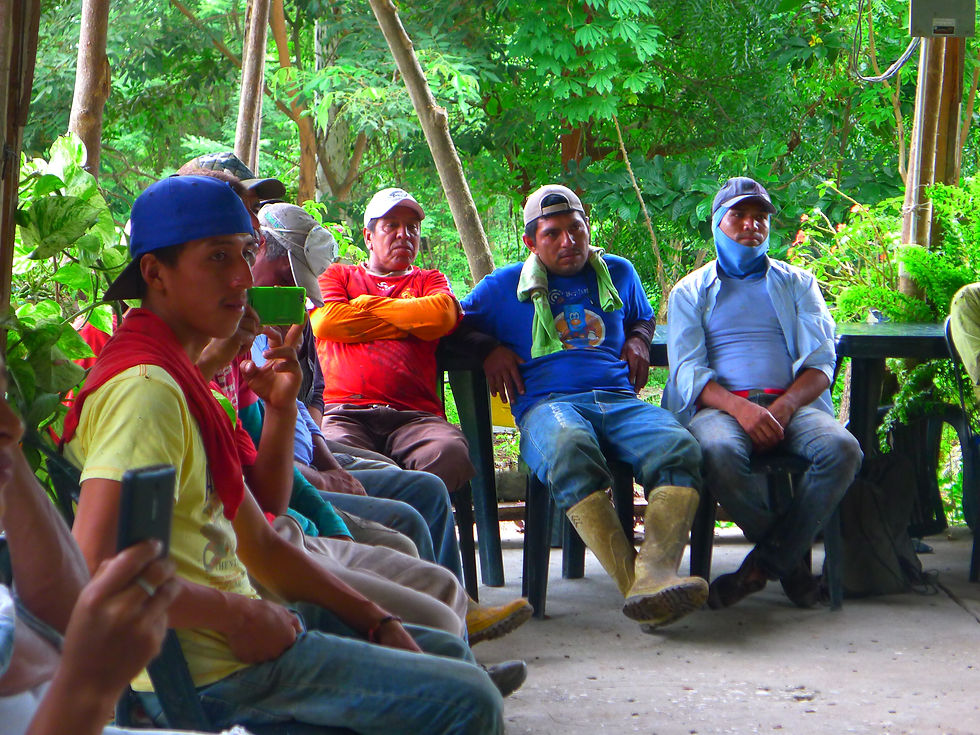
As I watched and listened, floored by the fact that Protestant Evangelism had reached even this tiny town that didn't even merit inclusion on a map, I remembered the Filipino missionary I had met on the way here. He had been trying to escape to. Evangelism had been his own vehicle for free will. But did that necessarily give him to right to impose his beliefs on others? Were these people better off for living puritanical lives of abstinence and worship?
While working on the farm, there was an outbreak of mal de machete. It is basically a fungus that is transferred from the machete blade. Within a week, it can take out a thousand acres of plants. The only way to stop the spread is to pull out the infected trees from the root and burn them. It was an all-hands-on-deck emergency situation. All of the beautiful cacao trees could be lost within the week. It got me thinking about the way ideas, viruses and diseases all spread. They spread because of closeness, they take hold, and the only way to get rid of them is to pull them up at the root.
East of Eden comes after the fall. Adam and Eve have been cast out and now they must contend with their own consciousness: being aware of their nakedness and feeling shame, questioning the morality of what they do, and having free will. It is a terrifying state. We can try to turn back to nature, and I believe farming and learning the land is an effective way to do so. And amid this constant existential terror that humans face, there is at least a glimmer of hope: we have the choice to rise above our nature and be good.
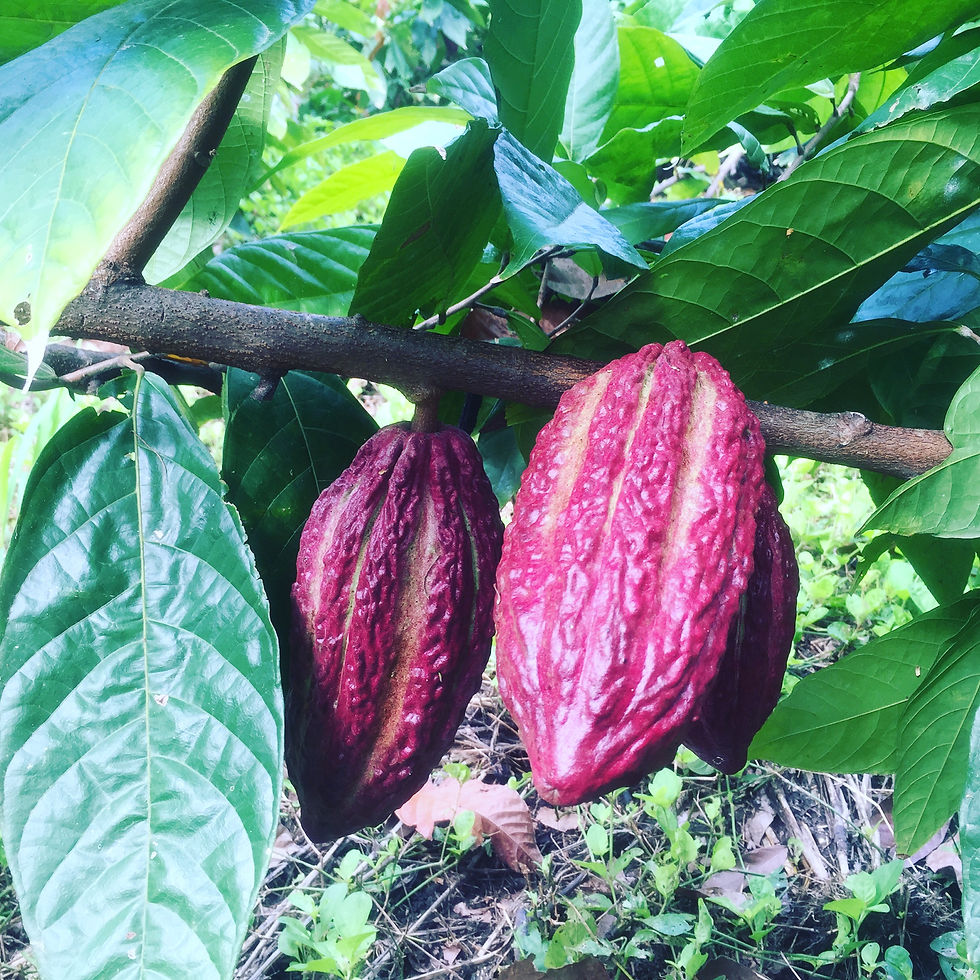


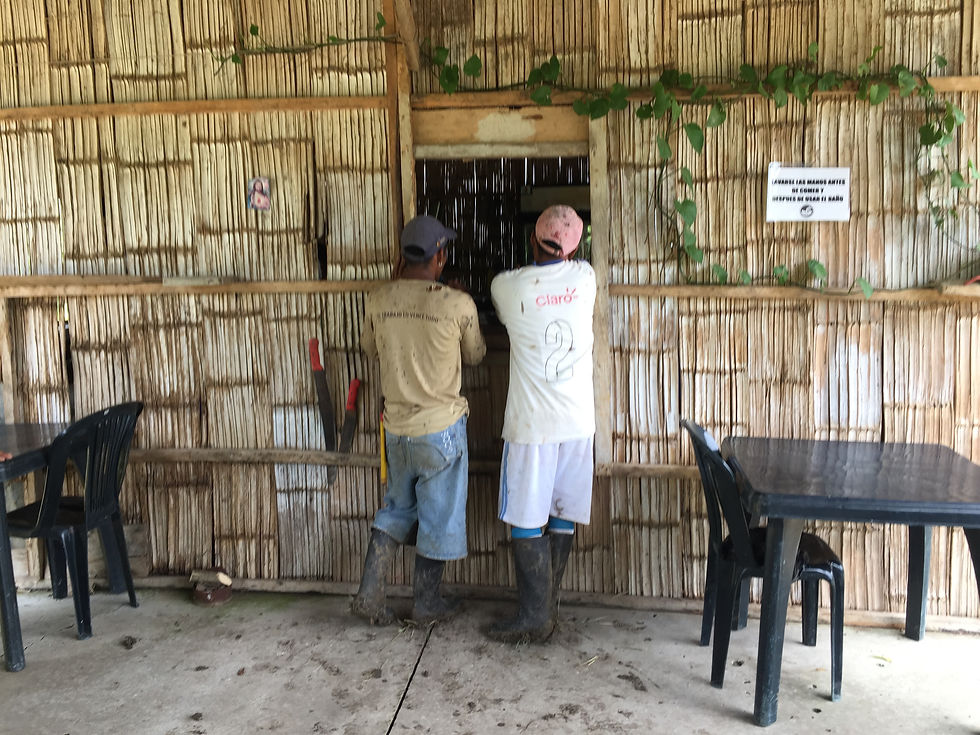
#evangelism #Ecuador #WWOOF #EastofEden #JohnSteinbeck #Cerrecita #Guayaquil #travel #farm #finca #ElAlto



Comments